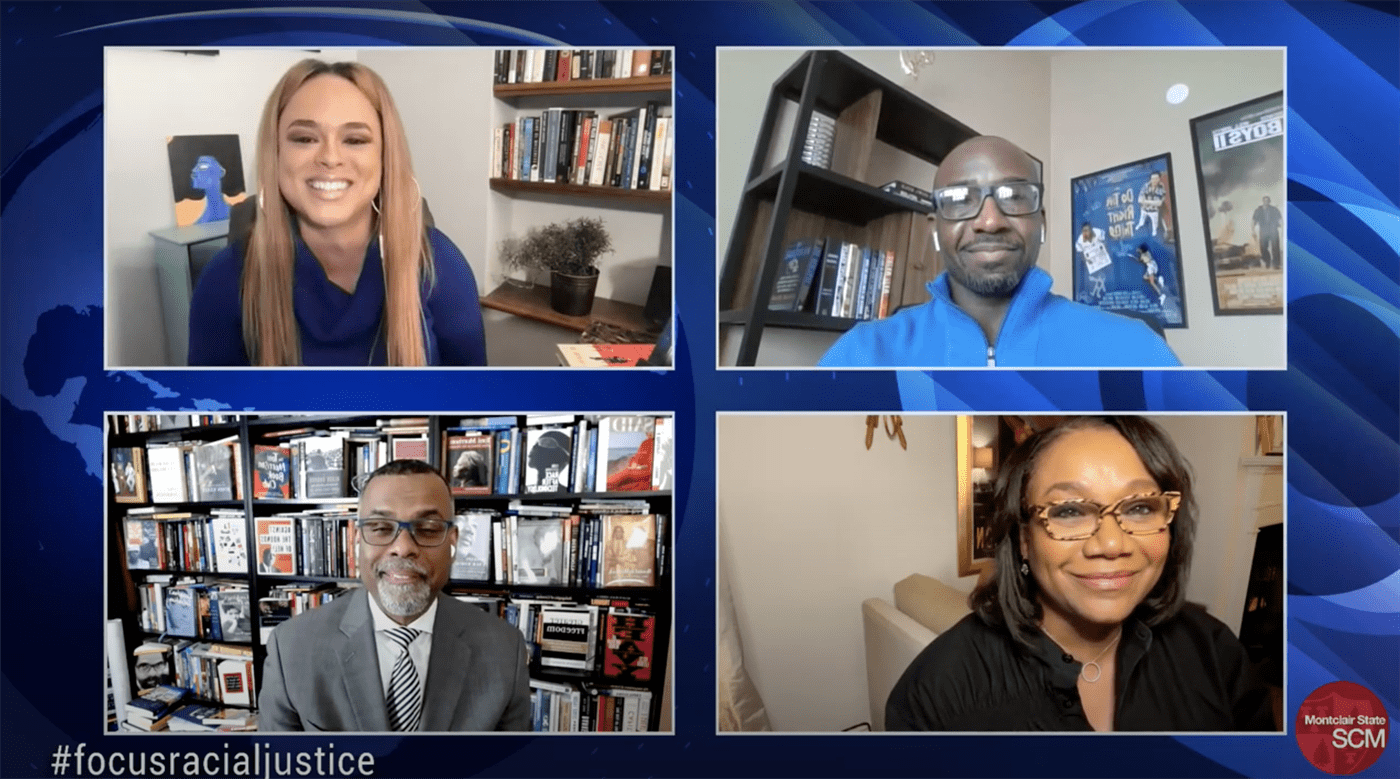The School of Communication and Media at Montclair State University held the second “Symposium on Racial Justice and Media” on April 15. The event featured leaders from the media industry who discussed a wide range of topics, including current news stories, the portrayal of race in the media and the future of diversity in the media.
The panelists consisted of professionals from various media backgrounds, including Dr. Eddie Glaude Jr., Vickie Burns and Anthony Smith. Glaude is the chair of the department of African American studies at Princeton University, a columnist for Time Magazine and an MSNBC contributor. Burns is a news executive and media strategist who has worked for NBC, Tribune Media and Scripps. Smith is an Emmy-nominated sports documentary producer and director.
The event was hosted by Dr. Tara Conley, an assistant professor of transmedia storytelling. Conley acknowledged that the conversation is taking place during a difficult time for oppressed communities.
“I want to acknowledge that this conversation is taking place during a moment when we’ve lost yet another Black American, Daunte Wright in Minnesota, all while the Derek Chauvin trial is still ongoing and literally moments before streaming, I just found out about [Adam] Toledo, a 13-year-old boy who was shot and killed by police in Chicago last month,” Conley said. “In addition, Asian and indigenous communities across the country are confronting violence.”
Glaude started the conversation by explaining that media professionals need to diversify their stories and challenge popular assumptions.
“It seems to me that we have to figure out how to shift the center of gravity of our stories,” Glaude said. “What can we bring into view that might disrupt a set of assumptions about who we take ourselves to be, about what’s important, about what matters?”
The panel discussed the phrase “defund the police,” which has made national headlines and sparked fierce debates. It was originally offered as a solution to decrease police brutality and corruption, but some argue that decreasing funding to the police will only make these issues worse. Burns noticed that defenders of “defund the police” tended to be younger people who were attempting to develop a message for their movement.
“There’s been a lot of conversation about whether or not that phrase was effective and my perspective was the gap on that was possibly generational and each generation gets to define their message and their movement,” Burns said. “What was so impressive about last summer after George Floyd was the multicultural nature of the people, the young adults, who came out into the street and I was impressed by how informed they were.”
Smith encouraged students watching the panel to not be afraid to speak up and share their perspectives.
“To the students out there, no matter what background they are, if you are representing a minority in a room and your voice is a diverse voice in a room, speak up,” Smith said. “That is your job, to speak up and to be heard and to represent a different perspective.”



